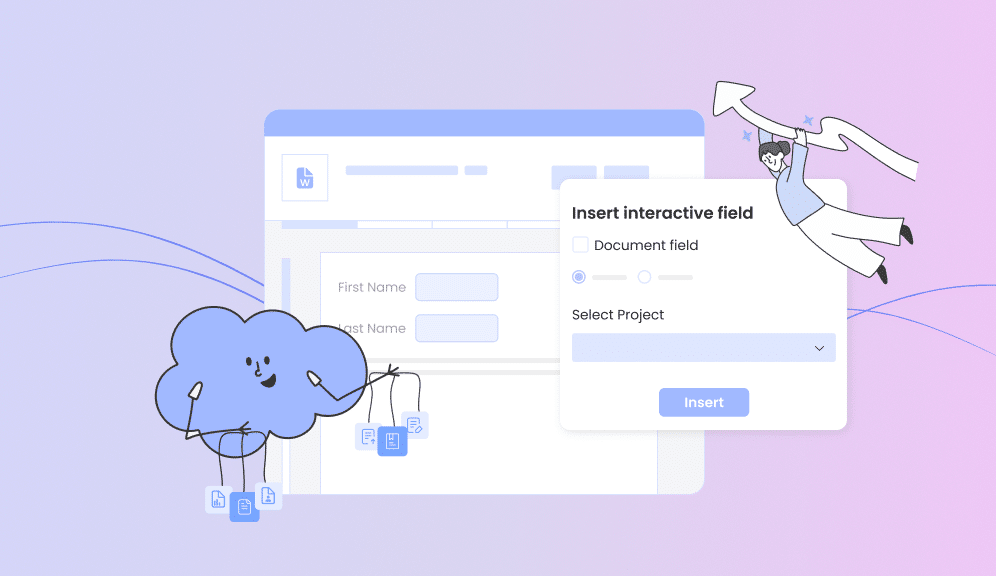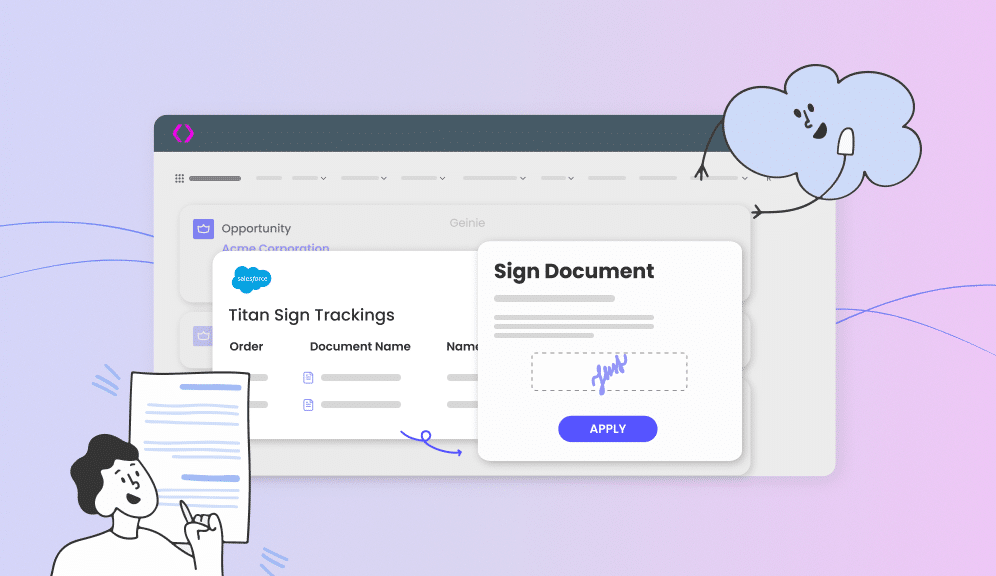What is CLM Software? Exploring Salesforce CLM + Beyond
What is CLM in Salesforce?
CLM stands for Contract Lifecycle Management and consists of all the tasks and processes involved in managing contracts from end to end, starting with initiation and ending with termination, and everything in between, including execution, compliance, and renewal.
The lifecycle of a contract is a long and complex journey, so taking advantage of your Salesforce platform to help you streamline CLM processes is a brilliant idea. Salesforce has the necessary tools and features to help you manage contracts, so why not make the most of it?
If you want to know more about “What is CLM in Salesforce?”, you have come to the right place! We also have other fun topics to cover, like CRM and CPQ software comparisons, and the difference between CRM and CLM.
So, stick around till the end of the article to pick up all the extra content.
What is CLM Software?
Now that we are all on the same page and understand that CLM includes all the tasks and processes involved in managing contracts, we can move forward and discuss “What is a CLM system?”
CLM software is a tech solution used to automate the different stages of a contract management system. Organizations choose CLM software to improve tasks associated with managing contracts to reduce risks and adhere to compliance.
Creating accurate and professional contracts is key to building solid relationships with customers or partners, so we see why adding CLM software to optimize systems for Salesforce solutions is a no-brainer.
What are CLM Tools? Examples of CLM Software
Are you looking for reliable CLM software that can integrate with Salesforce? Here are a few options that you could consider:
- Adobe Sign
- Salesforce Apttus CLM
- Conga Composer
- DocuSign
- Highspot
- PandaDoc
- SalesLoft
- Seismic
- SpringCM
- Titan CLM
Difference Between CLM & CRM: CLM Vs. CRM
In terms of Salesforce, what is CRM and CLM? Although the acronyms are very similar, CLM stands for contract lifecycle management and CRM stands for customer relationship management. These are two very different platforms and approaches. They are both used in business to manage operations, but each system has a distinct purpose with its own set of functions and benefits.
Please take a look at our table below for a quick comparison between CLM and CRM software.
| CLM | CRM | |
|---|---|---|
| Purpose | Businesses use CLM software to manage contracts throughout their lifecycle. Many CLM apps pay attention to managing risks associated with contracts as these documents usually contain legal and financial sections. | CRM software is used to help businesses improve customer relationships. CRM apps can track customer interactions, handle sales leads, and provide options to improve customer services. |
| Users | Contract managers and administrators use CLM software. The software is also popular for legal, procurement, and finance teams. | CRM software is used by marketing, sales, and customer support teams. |
| Features | 1. Can create and author contracts. 2. Streamlines negotiation and approval workflows. 3. Supports document management and storing. 4. Assists with renewing and terminating contracts. 5. Tracks risks and obligations. | 1. Options to manage contacts and leads. 2. Helps to manage sales processes. 3. Provides automation tools for marketing initiatives. 4. Streamlines customer service and support tasks. 5. Can report on customer interactions. 6. Integrates with sales and marketing tools. |
| Data | CLM software handles and manages data related to contracts, legal terms, financial details, and compliance. | CRM software manages customer data, including their personal details, contact information, purchase history, chat logs, and individual preferences. |
| Benefits | Your business reduces contract risks and improves compliance. You can also use CLM software to streamline contract management processes. | Your sales, marketing, and customer support teams improve their customer relationships. Customer data can be analyzed to gain insights to improve sales, marketing, and customer service processes. |
Difference Between CLM and CPQ: CLM Vs. CPQ
While we are comparing CLM software with CRM software, we should also do a quick comparison of CPQ software.
Configure, Price, Quote (CPQ) software is quite different from CLM software. Both software solutions are used in a business to enhance operations and workflows in sales and contract management, but they address different needs. Let’s take a look at the comparison table below to show you what we mean.
| CLM | CPQ | |
|---|---|---|
| Purpose | Businesses use CLM software to manage contracts throughout their lifecycle. Organizations use CLM software to speed up tasks related to managing, tracking, and enforcing contracts. | CPQ software is designed to help sales teams create and generate quotes and proposals quickly. Documents can be configured with CPQ software to include complex products or services and apply rules to pricing. |
| Features | 1. Creating and authoring contracts. 2. Supports storing of contracts. 3. Automates approval processes. 4. Helps to manage compliance. 5. Tracks the expiration and renewal dates of contracts. 6. Provides tools to report and analyze the contract performance. | 1. Configure and customize products. 2. Manage and create rules for pricing. 3. Options to generate quotes and proposals. 4. Integration for CRM platforms. 5. Provides guided selling. |
| Users | Legal, procurement, and sales teams favor CLM software to manage contracts and reduce risks. | As you can imagine, CPQ software is used by sales teams but is also popular among tech companies, manufacturers, and service providers. |
Frequently Asked Questions
What is CLM used for?
Contract Lifecycle Management (CLM) is used in businesses to manage contracts from the beginning to the end of a lifecycle. CLM software can help your company automate many tasks in your CLM processes.
What are CPQ and CLM in Salesforce?
They are two systems that streamline processes in your business. They can be integrated into Salesforce to assist with sales (CPQ) and contract lifecycle management (CLM) processes and workflows.
What is Salesforce CPQ called?
Salesforce CPQ (configure, price, quote) is now called Revenue Cloud.
Titan CLM: Contract Management Software for Salesforce CLM Solutions
Thank you for spending time catching up on CLM, CRM, and CPQ topics with us. If you are looking for a platform to assist you with custom solutions for your Salesforce experiences, feel free to contact Titan.
We can help you make your biggest deals in minutes with CLM for Salesforce. What do we have to offer? Titan CLM empowers your employees to redline, edit, and comment on any contract while tracking every step inside Salesforce with no code. You won’t look back when you collaborate with Titan.
Choose Titan today to start creating custom contracts, web forms, apps, eSignatures, surveys, and more! With Titan’s full suite of enterprise applications designed to integrate seamlessly with Salesforce data across your entire organization, you can’t go wrong!
Disclaimer: The comparisons listed in this article are based on information provided by the companies online and online reviews from users. If you found a mistake, please contact us.
You might be interested in
Writing Your First Notarized Letter Like a Pro

How to Remove Track Changes in Word

Signee Vs. Signer Vs. Signatory: What are They?

All-in-One Web Studio for Salesforce


